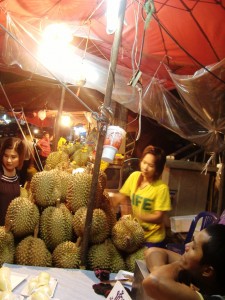I had somehow missed news earlier this year of a failed (just) attempt to clone the Pyrenean ibex. That’s an extinct subspecies of the Spanish ibex, Capra pyrenaica. I was belatedly alerted to it by a piece in LiveScience about “a new project to store tiny samples of tissue from endangered animals at New York’s natural history museum.”
With room for up to 1 million specimens, the AMNH’s frozen tissue lab currently stores frozen butterflies, frog toes, whale skin and alligator hides, among many other samples, in nitrogen-cooled vats. The collection is used today for conservation research — the genetic information gives clues to the breadth of the animals’ hunting grounds and breeding behaviors. In an agreement signed this month with the National Park Service, the museum will begin storing tissue samples of endangered animals living in the nation’s parks. The first samples — blood from a Channel Islands fox — should be delivered in August, museum officials said.
Maybe they should also include the caribou, “a species historically considered so numerous — and so distant from human activity — that most assumed it was beyond human ability to affect it.” But is perhaps in trouble now. Room for 1 million specimens might not be enough.
